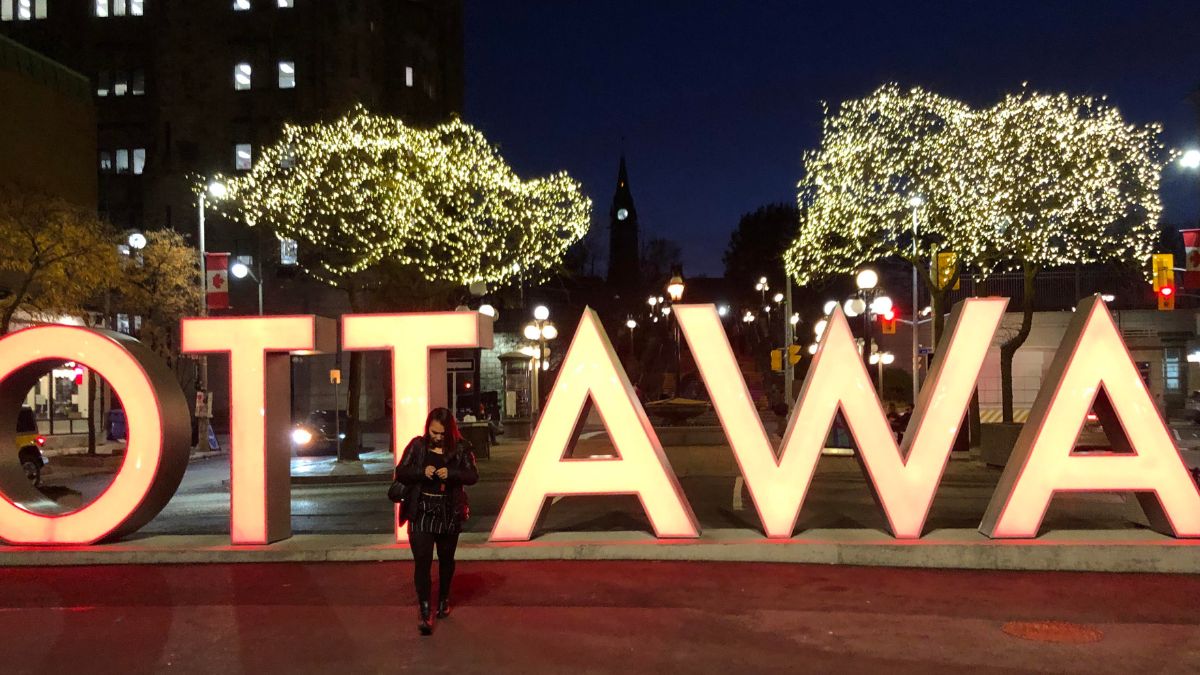Volunteer members of Ottawa’s Nightlife Council say they want to highlight and promote the city’s cultural and artistic diversity, as well as safety, in their inaugural term.
Following the recommendation outlined in the Nightlife Economy Action Plan, the council was established on Nov. 4. It includes 12 community members and six representatives from organizations engaged in Ottawa’s nightlife economy. This follows the announcement in July that Mathieu Grondin will be the city’s first Nightlife Commissioner.
The council will provide the Nightlife Commissioner Office with feedback on the state of nightlife in Ottawa, including recommendations on policies, safety programs and promotion over the next two years.
Aidan Kallioinen, associate vice-president of University and Government Relations at the Carleton University Student Association, is on the council. He said he is happy to represent students, as nightlife is near the top of their list of concerns.
“College students — university students as a whole — are a very significant economic driver of the nightlife scene in Ottawa and so it’s important that we have a say,” he told Capital Current.
Kallioinen said his goals include promoting nightlife within student neighbourhoods. This also includes collaboration between students and small businesses to “start chipping away at that notion that Ottawa is a boring city by highlighting to students what already is out there.”
We really need to celebrate what’s here, because there is a lot in Ottawa to celebrate, but it’s just below the surface.
Rachel Weldon, founder and director of Debaser, an independent music and arts presenter
Rachel Weldon, director of Debaser, an independent music and arts presenter, and another member of the council, said one of her priorities will be to address the lack of venues in the city.
“I don’t think it’s something that the city alone can help solve, but I think it’s something that they can help mitigate by making possible the rental or the usage of city-owned properties, or perhaps liaising between private sector property owners to make spaces available that could be temporarily, or more medium-to-long term for cultural organizers to use.”
In June, for example, the National Capital Commission agreed to lease the former Chapters/Indigo space at Rideau and Sussex streets to Live Nation as a live music venue.
Weldon said spaces must also be available for loud music and consumption of alcohol, adding that the city should “recognize the risks, but also find ways to recognize that nightlife participants are an important part of the community here and not always side with property owners or people who might have complaints about noise or other things.”
Kallioinen and Weldon say safety is an important issue they hope the city will address.
“Before we even begin to look at nightlife as an economic driver, we need to make sure what’s out there is safe for everyone. I’ll be looking to the city and other members of the council on what strategies exist to prevent and to protect against sexual violence,” Kallioinen said.
When the nightlife commission plan was first announced in 2023, businesses advocated for public safety at night.
According to Ottawa Police data, reported criminal offences in Ottawa rose rose nearly 19 per cent in 2022 compared to 2021, and another 12 per cent in 2023 compared with 2022.
In the ByWard Market, where many nightlife businesses are located, reported offences rose nearly 44 per cent in 2022 compared to 2021, and another 17 per cent in 2023 compared with 2022.
In July, Ottawa police stepped up officer presence near the ByWard Market, but some say more needs to be done.
Weldon said she would like to see the city take on a harm-reduction approach to safety.
“I think that there’s lots of ways that the city can support harm-reductive safety initiatives that will just keep the nightlife safer on its own terms, by recognizing the realities of what happens at night and not using that as an excuse or a scapegoat to shut spaces down, but more just to keep people safe in light of the realities of the situation,” she said.
Tara Shannon, executive director of the Ottawa Festival Network, an industry organization member of the council, said she is hoping for a collaborative approach to raising improving Ottawa’s night life.
“We advocate for all of the issues for our members as they produce events for the city,” she said.
“It’s just being part of that council to advocate on behalf of our members, but also to bring their ideas and their solutions and their creativity to the council to help with the overall initiative.”
While it is still unknown when the first meeting of the Nightlife Council will be, it will primarily support Grondin through its recommendations on policy and promotion.
Grondin wrote, in an email to Capital Current, that he is “incredibly encouraged by the enthusiasm for advancing nightlife priorities demonstrated by applicants from across the city.”
“Together with the members of the Nightlife Council, we will create ways to harness this energy and enthusiasm in the coming months and create other opportunities for people and organizations to stay engaged with the Nightlife Commissioner office,” he wrote.
The initiative from the city is unique, Weldon says, but emphasizes the need for grassroots, community-driven efforts.
“This type of work, to be successful, needs to be community-driven and not take a top-down approach — or at least work with the community members who are actively organizing and who, while they may be underground, are already defining what the nightlife looks like in this place,” she said.
“We really need to celebrate what’s here, because there is a lot in Ottawa to celebrate, but it’s just below the surface.”




